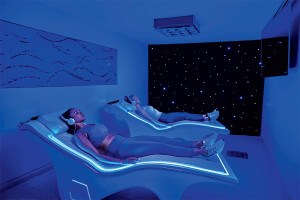Eating Dessert with Breakfast May Help Weight Loss
When is the last time you heard that adding dessert to a meal would help you lose weight? Never? Yeah, me neither. But a study in the March issue of the journal Steroids suggests that having dessert with breakfast satisfies cravings and leaves you fuller, so you’re less likely to indulge throughout the day.
Researchers put 195 obese people between the ages of 20 to 65 on low-carbohydrate diets. The diets were only different in one area: breakfast. One group received a low-carb breakfast, while the other (lucky) group received a high-carbo, protein-enriched one that included a choice of cookies, chocolate, cake or ice cream for dessert.
The average weight loss for both groups over a 16-week period was about the same, around 33 pounds for the group that ate the low-carb breakfast and 30 pounds for the group that ate dessert with breakfast. However, it was the dessert crowd that proved more adept at keeping the weight off. After 32 weeks, the low-carb group gained an average of 25 pounds back while the dessert-group regained just 15.
So what’s at work here? Scientists say ghrelin, a hormone produced in the stomach that’s responsible for telling the brain when the body needs to be fed. Higher levels of ghrelin means a bigger appetite. Throughout the study, ghrelin levels were measured in all of the participants. The dessert group showed a ghrelin-level reduction of 45 percent while the low-carb/ dessert-less group was only able to reduce levels of the hormone by 25.5 percent. This suggests that the participants who ate a morning dessert were fuller, their appetites more satisfied.
“Most people simply regain weight, no matter what diet they are on,” lead study author, Daniela Jakubowicz of Tel Aviv University, told the New York Times. “But if you eat what you like, you decrease cravings. The cake—a small piece—is important.”
Before you plop a scoop of ice cream atop your Special K, bear in mind that this could, sadly, be too sweet to be true. The study may not be conclusive.
“This study was relatively short-term, so I’m not sure how these participants would have responded if they were followed for a longer period of time,” Kristen Smith, a clinical nutritionist in bariatric surgery at Montefiore Medical Center in New York City told CBS News’s HealthPop. Another good point she makes: it could have been the high-protein breakfast that made one group fuller than the other, not the dessert. Dang it.
In any event, if you’d like to finish off your high-protein morning meal with something that gives your sweet tooth a high-five, we’re totally not stopping you.
>> See also: Is Ice Cream as Addictive as Crack?


